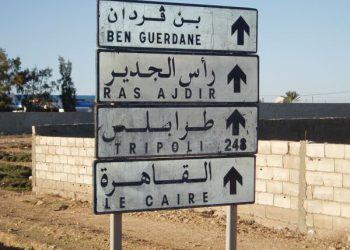By Libya Herald reporter.
Tunis, 3 November 2017:
A panel of Libyan experts at a workshop in Tunis to assess whether the draft constitution propose by the Constitution Drafting Assembly (CDA) is fit for purpose have concluded that for the most part it is, but that there are some significant additions needing to be made.
These, most notably, concern the lack of a preamble which sets out the background to Libya’s situation and its unity, and its failure to address the widespread public desire for a decentralised political system.
“Our overall assessment is positive”, said Suliman Ibrahim, the assistant professor of private law at Benghazi University and director the university’s Centre for Law and Society Studies which organised the workshop supported by the Van Vollenhoven Institute for Law, Governance and Development at the University of Leiden in The Netherlands.
The centre had started assessing the suitability of the previous CDA draft earlier this year, to see what needed to be done to improve it, but then moved on to the current draft when it appeared.
“We’re positive about 80 percent of it. It’s not as bad as has been presented,” said Ibrahim after the experts had carried out a systematic review of every section of the document. However, there were some 22 articles where the panel of lawyers, political scientists, historians and philosophers felt further work was needed – and specifically the need for decentralisation and local governance. There were also some inconsistencies and mistakes which need correcting.
A small handful of members of the CDA were also present at the workshop, including Zeinab Zeidi, and they explained some of the thinking behind the various articles. It was pointed out, however, that if and when the constitution is adopted, that it will not be the ideas behind it that will matter, but the text.
The experts’ recommendations will be collated by the Benghazi University centre and presented to the CDA to take on board when it amends the draft in line with the action plan from the UN special envoy Ghassan Salamé.







